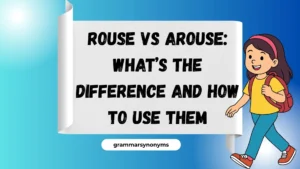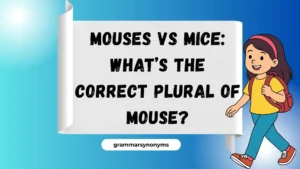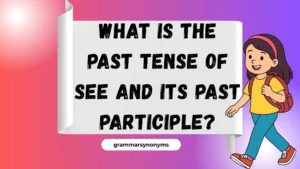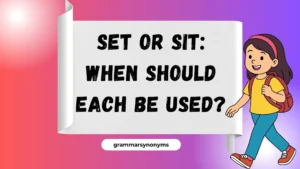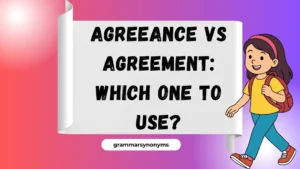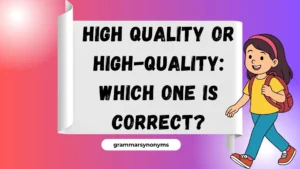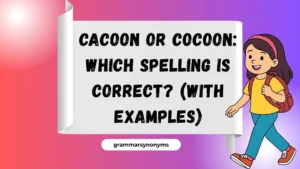When someone shares difficult news with us, the words we choose to respond can make all the difference. Offering a thoughtful response shows that you care and are empathetic to their situation. Sometimes, saying “I am sorry to hear that” can feel impersonal or overused.
Thankfully, there are numerous other ways to express your compassion and concern. By using these alternatives, you can communicate in a more warm, genuine, and meaningful way. Let’s dive into 30 thoughtful ways to say “I am sorry to hear that.”
What Does “I Am Sorry to Hear That” Mean?
Saying “I am sorry to hear that” is a common expression used to acknowledge someone’s misfortune or bad news. It is a way of showing empathy and offering sympathy when someone shares an upsetting situation. This phrase helps to convey that you understand their pain, sorrow, or disappointment.
Is It Professional/Polite to Say “I Am Sorry to Hear That”?
Yes, “I am sorry to hear that” is considered a polite and professional response. However, depending on the situation and relationship with the person, some alternatives might convey a more personalized or sincere message. The key is to choose a phrase that reflects the depth of your empathy and fits the context.
Pros or Cons of Saying “I Am Sorry to Hear That”
Pros:
- Simple and straightforward
- Universally understood
- Polite and compassionate
Cons:
- Can feel impersonal or cliché
- May not fully convey the depth of empathy
- Could sound robotic in certain situations
Synonyms For I Am Sorry to Hear That
- That’s really unfortunate.
- I’m so sorry that happened.
- I can’t imagine what you’re going through.
- That must be really tough for you.
- I feel for you.
- My heart goes out to you.
- I’m thinking of you.
- I wish I could take away your pain.
- This must be really hard for you.
- I’m here for you.
- I’m so sorry you’re dealing with this.
- That sounds really difficult.
- I’m really sorry to hear that.
- I can’t believe that happened to you.
- I’m so sorry you’re feeling this way.
- I’m deeply sorry to hear this.
- That must be really painful.
- I truly feel for you.
- That must have been so difficult.
- I’m really sorry you’re going through this.
- I can see why that would be upsetting.
- I wish things were different for you.
- That’s got to be really tough.
- I completely understand why you’re upset.
- You don’t deserve this.
- That must be so frustrating.
- I can tell this is really hard on you.
- I hate that you’re going through this.
- If I could change this for you, I would.
- I’m sending you all my love and support.
1. “That’s really unfortunate.”
Definition: A phrase used to express sympathy or regret for someone’s bad luck.
Detailed Explanation: This alternative is a more heartfelt way of acknowledging someone’s difficult situation. It shows that you recognize the unfortunate nature of what they’re going through.
Scenario Example: “Oh, your car broke down on the way to the meeting? That’s really unfortunate.”
Best Use: Use when the news is disappointing or frustrating.
Tone: Sympathetic, sincere.
Additional Notes: This phrase is simple but effective, suitable for both personal and professional situations.
2. “I’m so sorry that happened.”
Definition: An empathetic expression of regret and sympathy.
Detailed Explanation: This phrase goes beyond just expressing sorrow; it shows that you feel for the person and the situation.
Scenario Example: “I just found out you lost your job. I’m so sorry that happened.”
Best Use: When someone faces a personal or challenging loss.
Tone: Compassionate, understanding.
Additional Notes: Best used in emotional or sensitive contexts.
3. “I can’t imagine what you’re going through.”
Definition: A phrase that expresses empathy by acknowledging that you may not fully understand the pain, but you recognize it.
Detailed Explanation: This shows that you don’t just sympathize, but you’re also aware that their situation is unique and possibly difficult to comprehend.
Scenario Example: “I can’t imagine what you’re going through after the accident. I’m here if you need anything.”
Best Use: When someone is going through a traumatic or very personal experience.
Tone: Genuine, respectful.
Additional Notes: This phrase demonstrates care and an openness to be there for the person.
4. “That must be really tough for you.”
Definition: An acknowledgment that the situation is challenging for the person involved.
Detailed Explanation: This expression conveys that you understand the gravity of their situation, without overstepping boundaries.
Scenario Example: “I just heard about your grandmother. That must be really tough for you.”
Best Use: When you want to recognize someone’s difficulty while respecting their emotions.
Tone: Empathetic, supportive.
Additional Notes: It’s a comforting phrase that doesn’t diminish the person’s experience.
5. “I feel for you.”
Definition: An expression that communicates emotional sympathy and a sense of connection with the person’s pain.
Detailed Explanation: It’s a simple but powerful phrase that shows you are emotionally moved by their experience.
Scenario Example: “You’re going through so much right now. I feel for you.”
Best Use: When you want to express deep empathy and concern.
Tone: Warm, compassionate.
Additional Notes: This phrase conveys a deeper emotional connection.
6. “My heart goes out to you.”
Definition: An expression of deep sympathy, suggesting that you are emotionally affected by someone’s loss or struggle.
Detailed Explanation: This phrase implies that you’re not only sorry but also emotionally affected by the person’s situation.
Scenario Example: “My heart goes out to you after hearing about your father’s passing.”
Best Use: Use when someone is experiencing a significant loss or hardship.
Tone: Sincere, caring.
Additional Notes: It’s particularly comforting when dealing with grief or major life struggles.
7. “I’m thinking of you.”
Definition: A simple yet heartfelt way to let someone know you are keeping them in your thoughts during a difficult time.
Detailed Explanation: This phrase offers emotional support without being overly elaborate. It’s a soft but caring way to show you care.
Scenario Example: “I know things are tough right now, and I’m thinking of you.”
Best Use: Ideal when you want to send comfort without overwhelming the person.
Tone: Thoughtful, caring.
Additional Notes: A great way to show support when you don’t know exactly what to say.
8. “I wish I could take away your pain.”
Definition: An empathetic expression that conveys a desire to help alleviate someone’s distress.
Detailed Explanation: This phrase emphasizes your desire to do more and alleviate the person’s suffering, though you may not be able to.
Scenario Example: “I can’t believe what you’re going through right now. I wish I could take away your pain.”
Best Use: When someone is experiencing emotional or physical distress, and you want to offer comfort.
Tone: Compassionate, sincere.
Additional Notes: It may be appropriate in more intimate or close relationships.
9. “This must be really hard for you.”
Definition: A statement that acknowledges the difficulty of the person’s situation.
Detailed Explanation: This expression communicates that you recognize the hardship they’re going through and that you empathize with their struggle.
Scenario Example: “Dealing with a health crisis is never easy. This must be really hard for you.”
Best Use: Best used when someone is going through a personal or health-related crisis.
Tone: Empathetic, considerate.
Additional Notes: Suitable for a more casual conversation with close friends or family.
10. “I’m here for you.”
Definition: A reassuring statement that communicates your availability to support someone emotionally.
Detailed Explanation: This phrase lets the person know that, in addition to being sorry, you are ready to support them in their time of need.
Scenario Example: “If you need anything, I’m here for you during this difficult time.”
Best Use: Use when you want to extend an offer of practical or emotional help.
Tone: Supportive, open.
Additional Notes: It offers comfort and is often appreciated when people are grieving or struggling.
11. “I’m so sorry you’re dealing with this.”
Definition: A compassionate response acknowledging the difficulties someone is currently facing.
Detailed Explanation: This phrase highlights that you are aware of their ongoing struggles and want to acknowledge their hardship.
Scenario Example: “I can’t believe your house was damaged in the storm. I’m so sorry you’re dealing with this.”
Best Use: Best used when someone is experiencing ongoing challenges.
Tone: Sympathetic, supportive.
Additional Notes: Suitable for long-term struggles or ongoing stressful situations.
12. “That sounds really difficult.”
Definition: A gentle way of acknowledging that the situation the person is going through is challenging.
Detailed Explanation: This phrase expresses empathy without necessarily implying any solution. It shows you understand the challenge and offer validation.
Scenario Example: “Having to move away from home so suddenly must be hard. That sounds really difficult.”
Best Use: Use when the difficulty is specific or personal.
Tone: Compassionate, validating.
Additional Notes: This expression is great when you want to empathize without overstepping.
13. “I’m really sorry to hear that.”
Definition: A straightforward and sincere way to express sympathy for someone’s misfortune.
Detailed Explanation: A variation of the standard phrase, offering an easy and clear expression of empathy.
Scenario Example: “I just heard about the delay on your project. I’m really sorry to hear that.”
Best Use: When someone shares news of difficulty or frustration.
Tone: Sympathetic, polite.
Additional Notes: Good for professional or casual conversations when brevity is needed.
14. “I can’t believe that happened to you.”
Definition: A phrase that expresses shock and sympathy regarding the person’s unfortunate situation.
Detailed Explanation: This phrase is used when the news shared is surprising and distressing, emphasizing your disbelief at the person’s situation.
Scenario Example: “I can’t believe that happened to you during the flight. I hope everything’s okay now.”
Best Use: When the news is surprising and unexpected.
Tone: Sympathetic, shocked.
Additional Notes: Use when you want to express disbelief, showing that you truly empathize.
15. “I’m so sorry you’re feeling this way.”
Definition: A compassionate expression that acknowledges the person’s emotional or mental state.
Detailed Explanation: This phrase addresses the person’s feelings, letting them know you’re aware of their emotional burden.
Scenario Example: “I know the situation is overwhelming, and I’m so sorry you’re feeling this way.”
Best Use: When someone is dealing with emotional stress or mental health challenges.
Tone: Caring, empathetic.
Additional Notes: Useful in situations where emotional well-being is affected.
16. “I’m deeply sorry to hear this.”
Definition: A more intense and heartfelt way to express sympathy.
Detailed Explanation: This phrase emphasizes the depth of your sorrow, making it sound more sincere.
Scenario Example: “I’m deeply sorry to hear this. If there’s anything I can do, let me know.”
Best Use: When the situation is serious and requires a deeper emotional response.
Tone: Formal, heartfelt.
Additional Notes: Best used in professional or serious personal situations.
Read More: 30 Other Ways to Say “This Is to Inform You” (With Examples)
17. “That must be really painful.”
Definition: A phrase acknowledging the emotional or physical pain someone is experiencing.
Detailed Explanation: This expression allows you to validate their pain without assuming how they feel.
Scenario Example: “Losing a pet is never easy. That must be really painful for you.”
Best Use: When someone is experiencing grief or physical suffering.
Tone: Sympathetic, understanding.
Additional Notes: This phrase can be comforting when used appropriately.
18. “I truly feel for you.”
Definition: A statement that expresses deep empathy and understanding.
Detailed Explanation: It highlights that you’re not just offering words but truly empathizing with their situation.
Scenario Example: “I truly feel for you during this difficult time. You don’t deserve this hardship.”
Best Use: When you want to express deep emotional support.
Tone: Warm, caring.
Additional Notes: Works well in both personal and professional settings.
19. “That must have been so difficult.”
Definition: A phrase that acknowledges how challenging a situation must have been for the other person.
Detailed Explanation: By using this phrase, you validate their experience and show understanding.
Scenario Example: “Going through a divorce is never easy. That must have been so difficult for you.”
Best Use: When someone is sharing a particularly challenging experience.
Tone: Empathetic, kind.
Additional Notes: It’s useful when the person has already shared their struggle.
20. “I’m really sorry you’re going through this.”
Definition: A way to acknowledge the ongoing difficulties someone is facing.
Detailed Explanation: This phrase expresses continuous support rather than just a one-time statement of sympathy.
Scenario Example: “I know the last few weeks have been tough. I’m really sorry you’re going through this.”
Best Use: When someone is facing long-term challenges.
Tone: Compassionate, ongoing support.
Additional Notes: A good way to show you are consistently there for them.
21. “I can see why that would be upsetting.”
Definition: A way of validating someone’s feelings without assuming their exact emotions.
Detailed Explanation: It acknowledges their perspective and offers support without overstepping.
Scenario Example: “I can see why that would be upsetting. That’s really unfair to you.”
Best Use: When someone is expressing frustration or sadness.
Tone: Supportive, validating.
Additional Notes: This phrase ensures the person feels heard.
22. “I wish things were different for you.”
Definition: A way to express regret that the person is going through a tough situation.
Detailed Explanation: This phrase communicates the desire for a better outcome.
Scenario Example: “I wish things were different for you right now. You deserve better.”
Best Use: When someone is feeling stuck in a tough situation.
Tone: Caring, hopeful.
Additional Notes: It can be encouraging while also expressing sympathy.
23. “That’s got to be really tough.”
Definition: A phrase that acknowledges how difficult a situation must be for the person.
Detailed Explanation: This is a more conversational way to show sympathy.
Scenario Example: “Having to move across the country unexpectedly? That’s got to be really tough.”
Best Use: In casual or friendly conversations.
Tone: Conversational, empathetic.
Additional Notes: Good for more informal settings.
24. “I completely understand why you’re upset.”
Definition: A phrase that validates someone’s feelings and emotions.
Detailed Explanation: This lets the person know that their feelings are valid and justified.
Scenario Example: “You put in so much work, and they canceled last minute? I completely understand why you’re upset.”
Best Use: When someone is venting frustration or disappointment.
Tone: Affirming, supportive.
Additional Notes: Helps in situations where emotional validation is needed.
25. “You don’t deserve this.”
Definition: A phrase that shows empathy and support by stating that the situation is unfair.
Detailed Explanation: This reassures the person that they are not at fault and deserve better.
Scenario Example: “I’m so sorry this is happening to you. You don’t deserve this at all.”
Best Use: When someone is facing an unfair situation.
Tone: Reassuring, comforting.
Additional Notes: Helps provide emotional support during unjust situations.
26. “That must be so frustrating.”
Definition: A phrase that acknowledges frustration and validates someone’s emotions.
Detailed Explanation: This shows you understand how annoying or difficult a situation must be.
Scenario Example: “You had to wait for hours just to be told they lost your file? That must be so frustrating.”
Best Use: When someone is venting about an inconvenience or unfairness.
Tone: Supportive, understanding.
Additional Notes: Good for when someone feels let down.
27. “I can tell this is really hard on you.”
Definition: A phrase that shows attentiveness and recognition of their emotional state.
Detailed Explanation: This phrase reassures the person that you see and understand their pain.
Scenario Example: “I can tell this is really hard on you. I’m here if you want to talk.”
Best Use: When someone is struggling emotionally but may not openly express it.
Tone: Caring, observant.
Additional Notes: Encourages the person to open up.
28. “I hate that you’re going through this.”
Definition: A strong way to express sympathy and frustration for someone’s struggles.
Detailed Explanation: This phrase shows that you genuinely wish they weren’t experiencing hardship.
Scenario Example: “I hate that you’re going through this right now. You deserve so much better.”
Best Use: When someone is going through a really unfair or painful experience.
Tone: Passionate, empathetic.
Additional Notes: Best used when you have a close connection with the person.
29. “If I could change this for you, I would.”
Definition: A phrase that expresses a strong desire to help but acknowledges limitations.
Detailed Explanation: This conveys deep empathy and care while also recognizing that some things are out of your control.
Scenario Example: “If I could change this for you, I would. I hate seeing you go through this.”
Best Use: When you deeply wish you could ease someone’s pain.
Tone: Heartfelt, sincere.
Additional Notes: Helps express strong emotional support.
30. “I’m sending you all my love and support.”
Definition: A warm and heartfelt way to show care and encouragement.
Detailed Explanation: This phrase emphasizes that you are thinking of them and want them to feel supported.
Scenario Example: “I know you’re going through a lot right now. I’m sending you all my love and support.”
Best Use: When someone needs comfort and encouragement.
Tone: Warm, affectionate.
Additional Notes: Great for both close personal relationships and general support.
Conclusion
Choosing the right words to express empathy and sympathy can strengthen relationships and provide comfort in tough times. While “I am sorry to hear that” is widely used, incorporating more thoughtful and personalized alternatives can convey your care in a more genuine way. Whether you’re comforting a friend, colleague, or loved one, showing emotional support through your words can make a world of difference. Use these 30 alternatives to offer your empathy in a heartfelt, meaningful way, and ensure that your message resonates with warmth and understanding.
FAQs
1. Why is it important to have different ways to say “I am sorry to hear that”?
Having a variety of expressions allows you to communicate more genuinely and tailor your words to the situation. Personalized messages feel warmer and more caring, which helps the person receiving the message feel heard and supported.
2. Can these alternatives be used in professional settings?
Yes, many of these alternatives are appropriate for professional settings, especially when you want to show empathy to colleagues or clients. Choose the tone that best suits the context, and always consider the level of formality in your workplace.
3. Which alternative is best for a personal loss or grief?
For situations like personal loss or grief, expressions such as “My heart goes out to you” or “I’m deeply sorry to hear this” are especially meaningful. These show deep compassion and acknowledge the emotional weight of the situation.
4. How do I decide which alternative to use?
The key is to match the phrase to the tone of the situation. For example, if someone is going through a long-term challenge, a phrase like “I’m really sorry you’re going through this” can offer continuous support. For a sudden loss, “My heart goes out to you” or “I feel for you” may be more appropriate.
5. Can these phrases be used in texts or emails?
Yes! These phrases can be just as effective in text or email formats. It’s important to maintain the tone of empathy and warmth, and these alternatives can help convey your message more personally than simply saying “I’m sorry to hear that.”

“Emma Brooke at Grammar Synonyms is your trusted source for mastering the art of language. Whether you’re looking for the perfect synonym, refining your grammar, or searching for that one ideal phrase, we’ve got you covered. With a wealth of tools and resources, Emma Brooke brings you creative solutions for all your writing needs, making sure your words always hit the mark. Unlock a world of language possibilities and elevate your writing with ease.”

